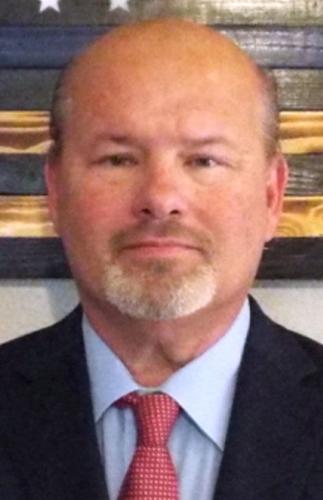Social issues were a significant focus during a forum this week with candidates hoping to be elected to be Pima County’s top prosecutor and its sheriff.
Incumbent Pima County Attorney Laura Conover faced off against fellow Democrat and primary election challenger Mike Jette. Sheriff Chris Nanos appeared with Democrat challenger Sanford (Sandy) Rosenthal as well as Republican hopefuls Terry Frederick, Heather Lappin and Bill Phillips.
The forum gave the seven candidates a platform to discuss crucial issues facing Pima County. They were each given 90 seconds to answer questions during the Monday night forum hosted by the NAACP Tucson, League of Women Voters, Interdenominational Ministerial Alliance (IMA) and Tucson Alumnae Chapter of Delta Sigma Theta Sorority, Inc. at the Donna Liggins Center.
Candidates discussed myriad issues, including racial and ethnic disparities, gender equity, the elimination of cash bail, public transparency in gun violence, mental health, drugs, leadership and management skills and community partnerships.
The night started out with Conover and Jette going face-to-face. Conover, finishing her first term, said she’s implemented changes with respect to how the office handles the death penalty, juvenile law, drug crimes and public safety.
“We have to stop felonizing substance use disorder and mental health, by making sure that prior convictions no longer deprive people of the chances they need now,” said Conover while addressing the issue of racial and ethnic disparities here. “That’s the way we try to equalize things for neighborhoods who we know were over-surveilled, over-policed, over-arrested, over-charged and over-incarcerated.”
Conover said “the homicide panel,” where race and ethnicity isn’t revealed, is an effort to treat similarly-situated individuals equally under the law. The panel, which was set up by Conover’s predecessor, meets every Monday and involves a think-tank element where collaboration leads to equitable solutions, she said.
Jette, a prosecutor and former Assistant U.S. Attorney for Arizona, encapsulated his 17 years of experience, his view on diversion on non-violent crimes, gun and domestic violence, victim voices, abortion and environmental issues in his opening statement.
“During my candidacy, I have learned about the implicit bias in our system,” said Jette. “We need a different look at drug crime and how we treat individuals who are addicted. We don’t need to criminalize it. We need to treat them.”
Jette talked about the distinction between individuals who are struggling with drug addiction and are in need of assistance and resources, and those who harm communities. He asserted accountability for the latter.
As for mental health training for law enforcement, Jette said it is important to have a “combat counselor” with officers on calls to help neutralize situations.
Conover said there’s been an “extraordinary spike” in petitions in the health law unit for individuals seeking court-ordered mental health treatment.
“Tucson leads the nation truly in its revolutionary program called the ‘Mental Health Support Team,’” said Conover. “These are non-uniformed officers with a specialized caseload who co-respond with highly trained workers in the behavioral health realm.”
When both candidates were asked about the most pressing issue in Tucson, Conover cited the homicide backlog from two years ago amidst a nationwide crime spike, while Jette said it is “the leadership at the top of the county attorney’s office.”

Nanos
In the race for sheriff, issues such as racial and gender equity in positions of power and the legal system, substance abuse and public trust in law enforcement were addressed.
While most candidates detailed their experience, skillset and motivations behind seeking to be the county’s top law enforcement officer, GOP candidate Frederick, a former deputy and later owner of a private investigation agency, opened with attacks on Nanos’ leadership.

Frederick
Among “five major incidents and counting,” Frederick included Nanos’ termination of corrections officers who refused the COVID 19 vaccine, an incident in which a sergeant was allegedly sexually assaulted by a colleague during a party and his defending an officer accused of shoplifting.
“As far as unlawful activities go, our deputies are human,” said Nanos, later addressing a question about restoring public trust in law enforcement when numerous unlawful activities are occurring within departments.
“Because I believe in being compassionate, the hardest job (is) firing somebody. You are all innocent until proven guilty. Why should that corrections officer be facing a different set of circumstances because of his badge?”

Lappin
To the same question, Lappin, who described herself as a “bleeding heart Republican” and has served with the department for the last 19 years, had a slightly opposing view.
“Public trust is a delicate thing and when we break that trust by tarnishing that badge, it creates a ripple effect through the community,” said Lappin, who seeks to be the first woman elected sheriff in Pima County. “We already have a narrative against law enforcement and it continues that narrative. You still have to have accountability for your department.”
Lappin, who has publicly spoken about battling her son’s substance abuse issues, reiterated her stance on accountability and treatment when the issue of deflection programs for drug addiction came up. She cited the importance of “not giving up on drug addicts” and providing them with enough opportunities to get better.

Rosenthal
On the issue of representing women and people of color in positions of power and supporting them through promotions, Rosenthal, a Tucson native with a long law enforcement career including working with Nanos, said the department currently lacks on the issue of trust.
“The way we change and mirror our community is by hiring,” Rosenthal said. “In order to make sure that we have a diverse employee group is to hire and start at the beginning — the high school group, our community colleges and our universities.”

Republican Bill Phillips
Addressing a similar question on racial and ethnic disparities in the system, Phillips, who retired from the department in 2022 after 31 years of service, said the answer was having more deputies in neighborhoods and the community.
“The way you work on the bias issue, is you go into the neighborhoods and you understand the people in there,” said Phillips. “To prevent bias, the police in those neighborhoods know the people that are troublemakers, they know the people that need some help.”










